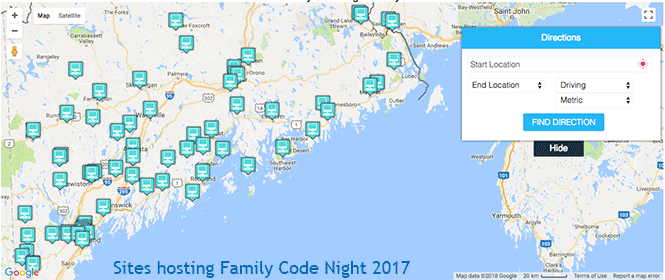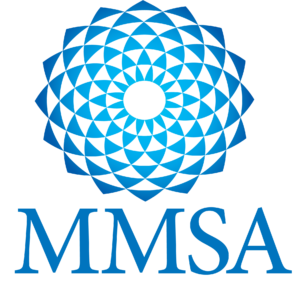During the week of December 4, 2017, 1200 Maine youth took their parents to school to learn about computer programming through Family Code Night. The Reach Center at MMSA facilitated the statewide learning opportunity at over 60 sites including schools, libraries, and other venues for the 1200 youth and 800 adults with at least one event occurring each of Maine’s 16 counties.

Family Code Night is one of the responses for the call to take action about computer science education in Maine. Right now, according to Code.org, there are 845 computing jobs in Maine– two and a half times the state average demand rate. Maine had only 112 computer science graduates in 2015 to meet these needs, and only 16% were female. Surprisingly, 71% of new STEM jobs are in computing (https://code.org/promote/me).
MMSA is answering the call to take action by supporting youth and adult computer science learning opportunities such as Family Code Night, Exploring Computer Science, and joining with Educate Maine as a Regional Professional Development Partner with Code.org. These are all first steps to provide all Maine K-12 students with the opportunity to learn about computer science. We have started with young children (elementary school age) and their parents to build knowledge and excitement. But that’s just the beginning. In addition, we have:
- Worked across Maine with Family Code Night in each county and with our Exploring Computer Science teacher professional development serving teachers from Madawaska to Kittery and Eastport to Rumford.
- Worked with technology-based Maine business and industry leaders such as the Jackson Lab, Mt. Desert Island Biological Lab, Axiom Technologies, Kepware, and LL Bean to highlight their uses of computer science.
- Developed materials showing youth how technology and CS are used in emergency response.
What else should be done? You don’t need to be a teacher to support the teaching of computer science. For example:
- Parents can access a multitude of websites that describe projects they can do with their kids, including Hour of Code, Scratch, and Khan Academy. Parental interest and involvement will support and build demand for the teaching of computer science in K-12 schools. And there are many out of school opportunities including Maine Robotics, after school programming and clubs, and app challenges. Check the Maine STEM Resource Bank at steminme.org for other ideas.
- Businesses can help too, by providing mentors and judges for computer science projects at the Maine State Science Fair, coaches for out of school clubs, and support for in-school and out-of-school computer science education.
The result of not taking a next step is that Maine youth and the state as a whole will continue to be behind, to increase the number of unfilled computing jobs, and for sending our best and brightest out of state. Let’s build supply and demand here – MMSA would welcome your involvement!


